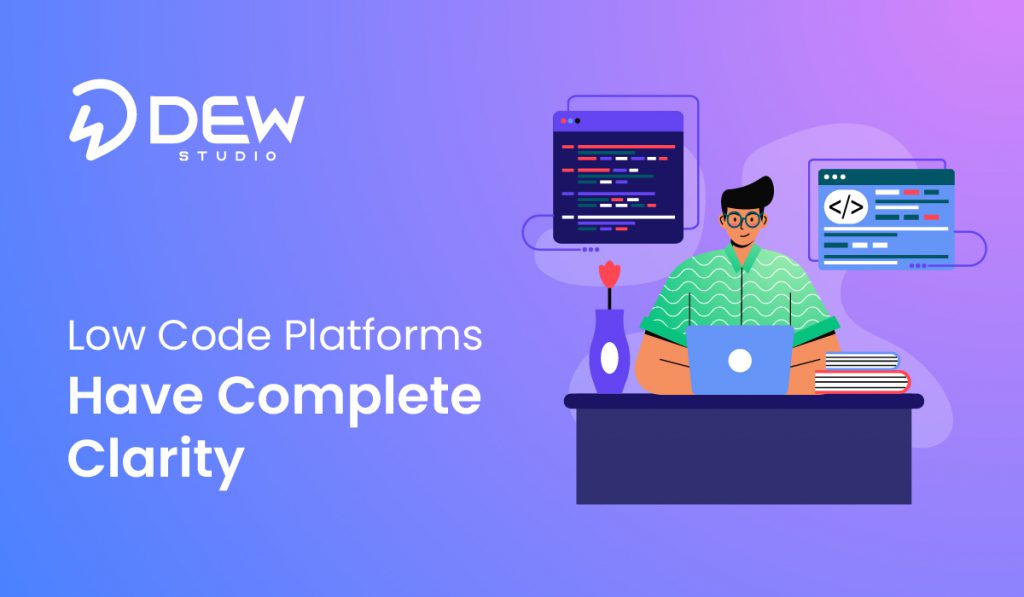The surge in the mobile market consequently increases business demand for mobile and web applications. Users prefer services that they can access from their homes and, most importantly, from their mobile devices. Therefore, expanding business targeting mobile-using consumers becomes essential. This demands investment in tools, technologies, and professionals that ultimately will give significant returns.
However, even after making substantial investments, there are chances of delay in application development, lack of skillful resources or poor maintenance & support for future updates. Clearly, no business would want to experience such obstacles when they are investing a large sum. Henceforth, to avoid potential complications, it is better to opt for a Low-Code platforms which is independent of the problems as mentioned above.
Fortunately, meeting the expectations of many IT industry leaders, the Low-Code App Development Platform has already gained their interest and trust to utilize for web and app development.
What is a Low-Code Platform?
A brief technical explanation of low-code software, it offers both expert and novice developers an ease of doing development. This involves the utilization of a Graphical User Interface (GUI). With the help of the solution, a software engineer can develop an app using a rapid application development tool, saving both time and resources.
Statistics on Low-Code Platforms:
Market research and study show that there will be an increase of 70% in new application development using low-code software by the year 2025.
Source: Quandary Consulting Group
Reading the above-mentioned statement brings an intriguing question, which is ‘HOW?’.
To address your curiosity, we are listing aspects that will provide insight into ‘How Low-Code Platforms Escalate Business App Development.’
Features of the Low-Code Platform that Accelerate Enterprises Application Development Process
Drag & Drop Feature:
In technical terms, it refers to visual modeling. It offers convenience to developers in making real-time changes while observing ongoing modifications. The functionality provides a clear picture of the task that they are performing. Leveraging this functionality, experts can also clear their deck to put their effort and time into much more complex or priority-based tasks. It is a development based on the model that provides the convenience of visualization for instant deployment.
Reusable Components:
There are predefined modules and templates that can be used multiple times. Apart from these two components, low-code platforms offer connectors, logic and much more for easy application development. In addition, it also provides flexibility in terms of customization to the components. This allows the experts to deliver tailor-made application designs and functionalities. This becomes beneficial when customers have a distinct interest or demand for their apps.
Scalability:
The low–code software allows professionals to make easy updates. Unquestionably, users’ changing behavior demands businesses to provide additional features in a timely manner. However, this cannot be possible without employing industry experts for continuous development. Therefore, to facilitate instant changes according to the market, a low-code solution is a better option to choose.
In a nutshell
Low-code platforms are an excellent solution for businesses seeking to develop their own apps quickly and cost-effectively. These platforms provide scalability, allowing businesses to easily modify and update their apps as their needs change over time.
Drag-and-drop functionality makes it easy to design and build custom user interfaces, even for users with little or no coding experience. Reusable components further streamline development, reducing time and costs while ensuring consistency across multiple applications.
Overall, low-code platforms are a powerful tool for businesses looking to accelerate their app development efforts and stay ahead of the competition.


